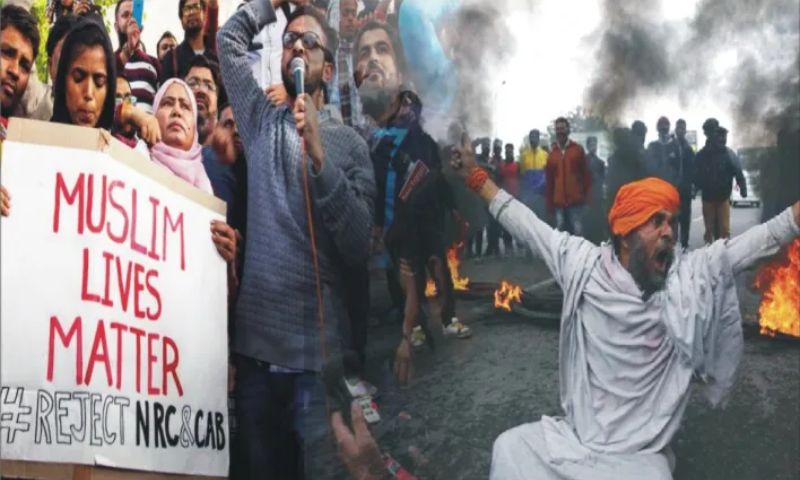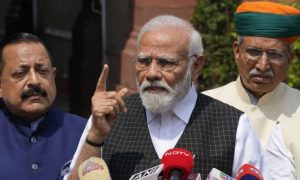WASHINGTON: In the world’s largest democracy, India, a disturbing trend has been gaining momentum – the oppression of Muslims, fueled by Hindu nationalism.
This disconcerting development has become so pervasive that it raises serious doubts about India’s future as a secular state. These revelations come from Hindutva Watch, a Washington-based initiative dedicated to monitoring hate speech and hate crimes against India’s religious minorities, with a particular focus on Muslims.
Under the leadership of Narendra Modi, the leader of the ruling Bharatiya Janata Party (BJP) since 2014, India has witnessed a sharp increase in hate speech and hate crimes, with religious minorities, especially Muslims, bearing the brunt of these alarming trends. Hindutva Watch’s report in September revealed that nearly 80% of hate speech events in the first six months of the year occurred in states governed by the BJP or territories controlled by the BJP-led central government. This statistic is especially significant, considering that only 45% of India’s population falls under BJP rule.
Hindutva Watch, founded by Raqib Naik and his 13-member team, all living in self-exile in Europe and America, has amassed a substantial archive of over 1,200 videos on their website, garnering millions of views. Raqib Naik, a native of occupied Jammu and Kashmir, embarked on this mission to provide a comprehensive repository of hate crimes against minorities. He stated, “I wanted to create a single space where all the hate crimes against minorities are cataloged and archived. Anyone interested in the rise of Hindu nationalism in India should be able to find it under one roof.”
Naik, who was born in a region marred by alleged human rights abuses, initially reported on civilian atrocities committed by Indian security forces. However, his dedication to his work led to personal consequences when his family faced harassment from Indian security forces. Consequently, he decided to remain in the United States, explaining, “Being a Kashmiri, Muslim, and a journalist is a deadly combination in India.”
Naik started by monitoring the social media activities of far-right leaders in India who propagate hate speech and upload it to their social media platforms. According to Naik, these activities are part of an ongoing message to their base that India is progressing towards becoming a Hindu supremacist nation.
Mainstream media in India has considerably reduced its coverage of hate speech and crimes, making Hindutva Watch’s work all the more vital. Journalists in India have revealed that they are often instructed to focus on criticizing opposition party leaders rather than leaders from Modi’s party, and to instigate controversies related to Muslims. This has led some journalists to express their disillusionment with the profession, stating that they are essentially engaging in public relations work, not journalism.
Hindutva Watch has made significant strides in drawing attention to these issues, with more than 75,000 followers on social media. Naik’s aim is to engage human rights groups, journalists, think tanks, and authorities around the world to bring about change in India based on the information they expose. According to Amnesty International’s Patel, India does not officially recognize hate crimes as a category of violence, and there is no official data on hate crimes, underscoring the importance of having an independent hate tracker like Hindutva Watch.
Despite their efforts to shed light on these issues, Hindutva Watch has also faced backlash and legal challenges within India. They have been accused of spreading enmity between Hindu and Muslim communities, with the police filing a complaint against them. Additionally, content posted by Hindutva Watch has been taken down following official complaints by the Indian government.
In a climate of increasing tension and scrutiny, Hindutva Watch persists in its mission to expose and raise awareness about the escalation of hate speech and hate crimes against India’s religious minorities. The path to justice and change may be challenging, but it remains a vital endeavor in the pursuit of a more inclusive and harmonious society.
























